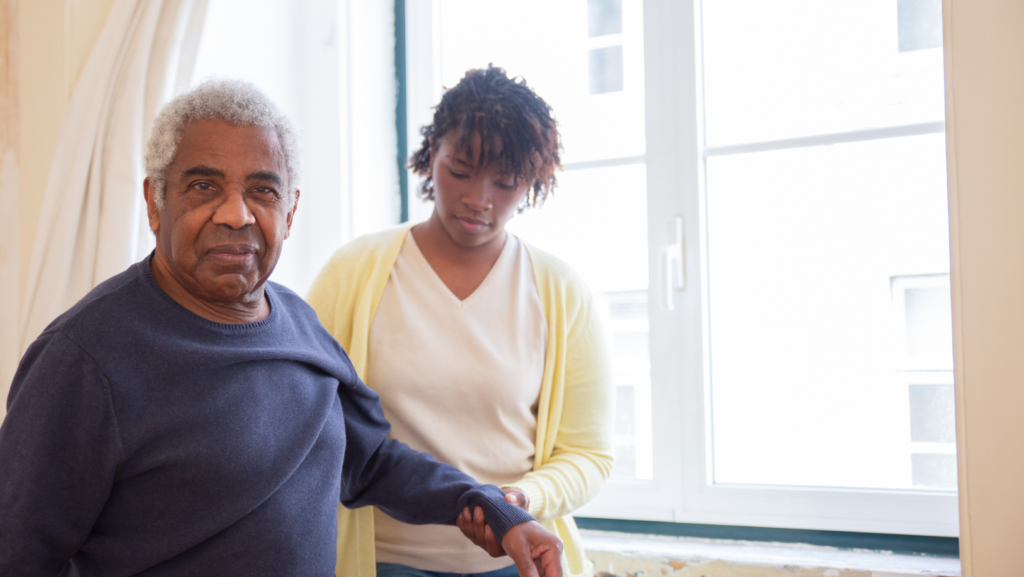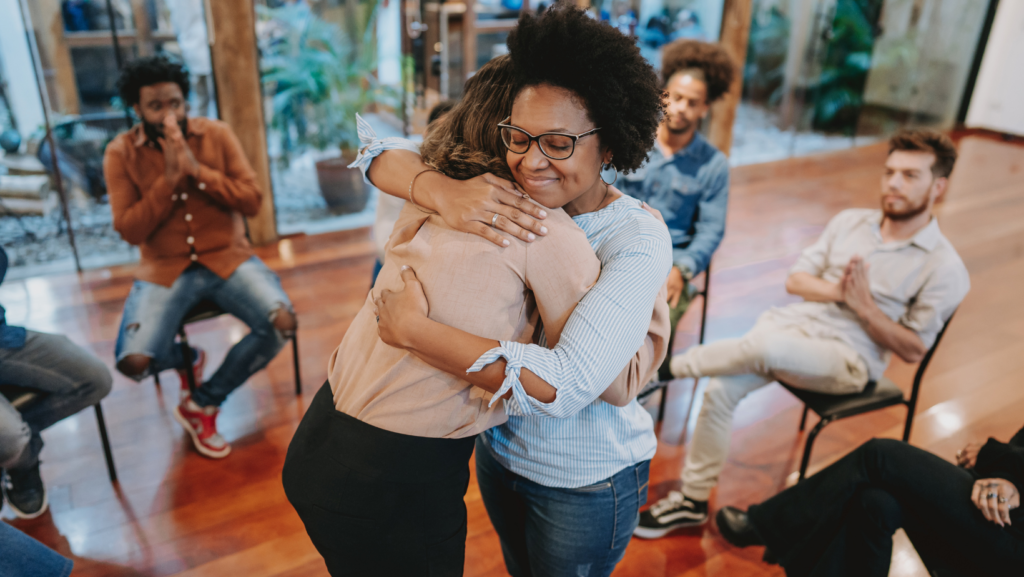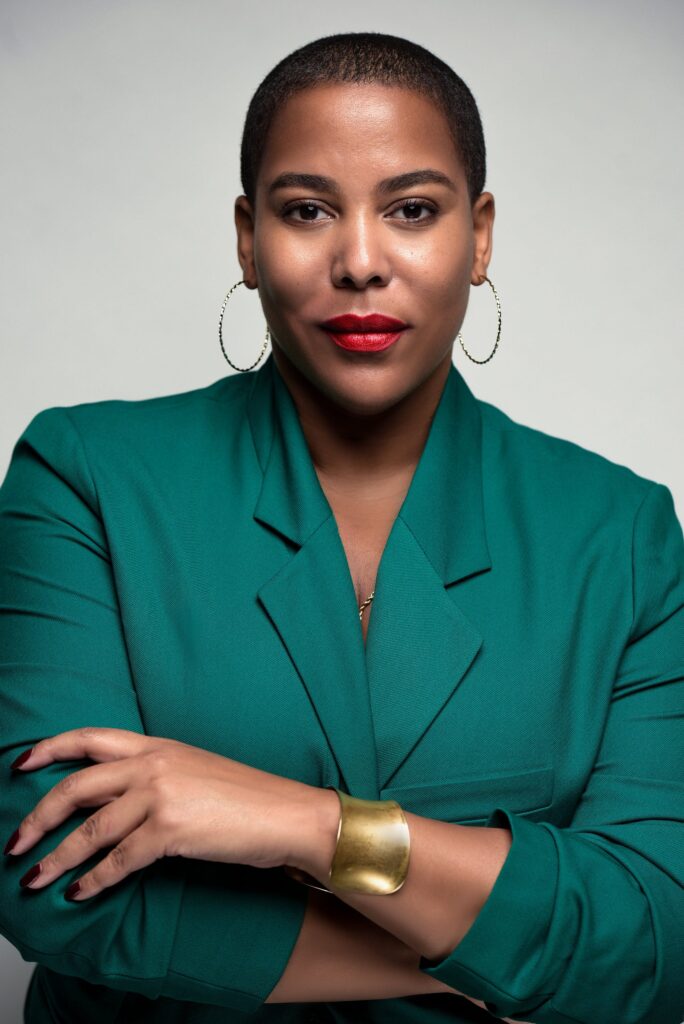
The responsibilities of caregiving have increasingly fallen on the shoulders of millennials — those born between 1981 and 1996 — within the Black community. This demographic is now at a stage where they are often required to care for aging parents, grandparents, or other family members.
At the same time, these young professionals must learn how to navigate their own careers, achieve financial stability, and find time for their personal lives. This dual role presents a unique set of challenges that impact their mental health, financial well-being, and overall quality of life.
“I’ve been working with millennials for close to a decade,” says Asha Tarry, three-time caregiver, mental health practitioner, and founder of Care for Caregivers. “Millennials — Black professionals, in particular — are feeling a strain from seeing their aging parents dealing with health issues and economic challenges, and they also feel a need to focus on their own careers and health. Their caregiving role is growing. As they get married or have children, they become involved in more of their parents’ medical and financial decisions.”
Financial impact

Financial strain is one of the most pressing issues faced by millennial caregivers. Many have to juggle work and caregiving duties, which sometimes leads to reduced hours or even unemployment.
Additionally, the high cost of healthcare in the United States can place a significant financial burden on these young caregivers, especially in the absence of adequate health insurance. For Black millennials, who are already navigating systemic economic disparities, the additional financial responsibilities of caregiving exacerbate these challenges.
“Millennials — Black professionals, in particular — are feeling a strain from seeing their aging parents dealing with health issues and economic challenges, and they also feel a need to focus on their own careers and health.
asha tarry
According to the AARP, the majority of African American caregivers work while caregiving and find it challenging to balance both roles. The study also finds that the financial impact of caregiving impacts the Black community more than non-Hispanic white or Asian caregivers because they are more often forced to dig into savings, leave bills unpaid, or take on debt.
“The stresses and strain of caregiving are not unique to the African American community,” observes Tarry. “However, on the whole, Black workers earn less money, which means they have less additional money to put towards caregiving. Moreover, because caregiving falls largely on the shoulders of women, it exacerbates the already compelling issues that Black women deal with in terms of underemployment and lower wages.”
The burden of caregiving
Caregiving encompasses a wide array of responsibilities, from healthcare management and personal care to financial support. Many Black millennials find themselves in caregiving roles without formal training, facing the emotional and physical toll of caring for loved ones with chronic illnesses or disabilities.
“When caregivers intervene on behalf of a loved one, they must educate themselves on legal, financial, and medical responsibilities,” remarks Tarry. “Education is lacking because the medical system does not adequately address when we need to start actively engaging in the lives of aging adults. On the whole, our Western culture does not integrate seniors well because we tend to isolate them from much of society once they are past retirement age. It’s a huge societal problem.”
One example of the burden caregiving can bring to Black millennials comes from Eric M., a 48-year-old Licensed Social Worker based in Washington D.C.
“I have worked with areas of Child Development in Psychiatry to being an Assistant Administrator in a Retirement Community working with seniors and their families,” says Eric. “I wouldn’t call myself a full-time caregiver — more of an intermediate caregiver to support my mother (72) and father (79), since I don’t live with them but check on them frequently, being only 10 minutes away.”
Mills states that he fell into a caregiving role after his father was diagnosed with cognitive impairment in 2021 following a series of mini-strokes he experienced. “In many ways, it mirrors dementia, even though he does not have an official diagnosis,” he explains. “My mother has also faced recent health challenges herself over the past year, including having half of her left lung removed due to cancer and a scheduled knee replacement canceled because my father fell and broke his femur, which resulted in a two-month stay in the hospital and rehab. My father can be a very challenging patient, to say the least, so I have become a chauffeur, confidant, emotional support, and a parent to my own parents in many ways.”
Mental health concerns

According to Tarry, the mental health of millennial caregivers in the Black community is another critical issue. The constant pressure and stress associated with caregiving can lead to burnout, depression, and anxiety. Mental health has historically been stigmatized in the Black community, so seeking help or even acknowledging these struggles is often difficult. This reluctance to seek support can compound the stresses of caregiving, creating a cycle that is hard to break.
“Millennials in the Black community are much more open about their mental health challenges than their parents are,” observes Tarry. “For years, the dynamic has been that certain issues are not discussed outside the family. Older generations didn’t have access to mental health education, treatment, or care. At the time, it was not a privilege afforded to people of marginalized communities. Now, we have a generation responsible for the growth of mental health treatment, and today’s young Black millennials are struggling to help their parents with the knowledge they’ve earned. They are not just talking with their peers about mental health issues but are also re-educating or re-parenting their parents. They are having tough conversations and encountering resistance to the role reversal. Overcoming these caregiving challenges requires a significant cultural shift.”
As many Black millennials experience this role reversal, as Eric has, the importance of mental health and well-being becomes more crucial than ever. “Helping my mother navigate the aging process with my father has been a major challenge,” he says. “She’s said she ‘just wants her husband back’, and while I remind her that he is still her husband, she only gets a few moments here and there with the man she fell in love with.
has also had to understand that there is no “right” or “wrong” when living with or caregiving for someone who has dementia. “There’s only understanding and choosing your battles,” he adds. “I’ve had to tell [my mother] that, too, and she finally agreed to speak with a therapist after two years of me trying to convince her. Her being in therapy has helped take some pressure off me, as the daily negative phone calls I used to get have decreased substantially, but both her therapist and I have had to reemphasize certain things about self-care and burnout as a caregiver for my father.”
Solutions and supports

Strong community and family support networks are vital for caregivers’ well-being. These networks offer practical help, emotional support, and a sense of belonging, reducing the isolation often felt by caregivers.
According to Tarry, community organizations play a significant role in building these support systems, offering programs that connect caregivers with resources and individuals in similar situations. However, addressing the challenges faced by Black millennial caregivers requires a multifaceted approach. Policymakers, communities, and businesses must come together to support millennial caregivers.
“We often say, ‘It takes a village to raise a child,’ but the same approach must be applied to caregiving,” Tarry asserts. “When people retire, the community must engage them and find ways for them to continue to feel useful. If they are not engaged socially and actively in the community, they experience mental and physical decline. We can afford a safe environment for people to age in with dignity — in the communities in which they live, their church community, their professional network, and their families. We need a holistic approach to caregiving because it requires so many systems to rely on one another. Communities must begin to consider ways to adapt to people who retire and make plans.”


